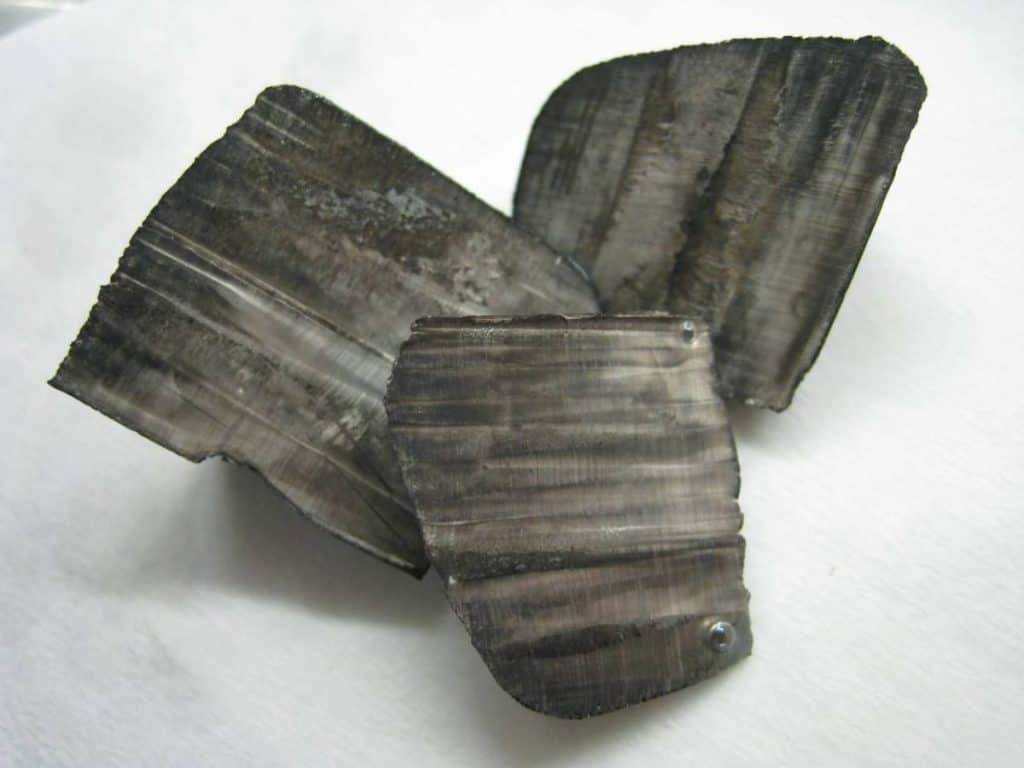AI-Driven Advancements Enhance Battery Development for Longevity and Stability


In Brief
A chemical compound identified by AI has shown promise in lab experiments, potentially unlocking safer, more energy-dense batteries.
The study, published in the American Chemical Society’s ACS Letters, concludes a seven-year journey by co-author Austin Sendek, who developed AI algorithms to predict lithium-based solid electrolytes.
The new compound, known as “LBS,” can hold high levels of electricity without breaking down, making it the most stable, sulfur-based lithium-ion electrolyte.
The study demonstrates how machine learning-based screening can accelerate the discovery of useful compounds.
In lab tests, a chemical compound discovered by AI demonstrated promise, possibly opening the door to safer, more energy-dense batteries. Co-author Austin Sendek’s seven-year quest to find potential materials for more stable, long-lasting batteries has culminated in the study, which was published in the American Chemical Society’s ACS Letters. The study examines a particular substance known as “LBS” (as a result of its chemical designation Li8B10S19) that can withstand significant electrical loads without degrading.

Seven years ago, a pioneering project was initiated by Stanford researchers, in which the integration of AI played a pivotal role. Through the deployment of machine learning algorithms, a novel approach was undertaken to identify materials that could serve as the foundation for enhanced battery durability.
Leveraging the power of AI, the research team embarked on an ambitious journey that led to the identification of 21 promising compounds from a pool of over 12,000 known lithium-containing materials. The machine learning algorithms meticulously assessed and selected these compounds, with a particular focus on their electrochemical attributes.
Among the compounds selected, LBS emerged as a beacon of promise. It is important to note that LBS is distinct from LK99. With its inherent electrochemical properties, LBS showcases the capacity to outshine existing materials in terms of stability and resilience. A standout feature of LBS is its robustness as a sulfur-containing lithium-ion electrolyte, capable of retaining high levels of charge without succumbing to degradation.

The discovery of LBS marks a significant validation of the efficacy of machine learning-based screening methodologies. Not only did AI-driven algorithms accurately identify LBS’s potential, but this breakthrough also serves as a testament to the expedited pace at which valuable compounds can be discovered. In the absence of AI intervention, the process of identifying such materials could have been considerably prolonged.
The implications of this discovery reverberate beyond its immediate impact. With AI’s ability to streamline and expedite material selection, the research team has set the stage for further advancements. The focus now shifts to refining LBS for optimal performance and delving into the exploration of novel materials, particularly for the development of safer solid-state batteries.
The trajectory of this project reflects a deliberate commitment to advancing battery technology on multiple fronts. The utilization of AI, a technological marvel in its own right, has ushered in a paradigm where precision and speed converge. As the team refines LBS and explores uncharted territories in battery material research, the ultimate goal remains the creation of batteries that embody both longevity and safety.
In the context of battery innovation, this endeavor stands as a testimony to the potential of AI to expedite scientific discovery. Through the union of machine learning and material science, researchers have achieved a milestone that resonates with practical benefits and advancements.
Read more about AI:
Disclaimer
In line with the Trust Project guidelines, please note that the information provided on this page is not intended to be and should not be interpreted as legal, tax, investment, financial, or any other form of advice. It is important to only invest what you can afford to lose and to seek independent financial advice if you have any doubts. For further information, we suggest referring to the terms and conditions as well as the help and support pages provided by the issuer or advertiser. MetaversePost is committed to accurate, unbiased reporting, but market conditions are subject to change without notice.
About The Author
Damir is the team leader, product manager, and editor at Metaverse Post, covering topics such as AI/ML, AGI, LLMs, Metaverse, and Web3-related fields. His articles attract a massive audience of over a million users every month. He appears to be an expert with 10 years of experience in SEO and digital marketing. Damir has been mentioned in Mashable, Wired, Cointelegraph, The New Yorker, Inside.com, Entrepreneur, BeInCrypto, and other publications. He travels between the UAE, Turkey, Russia, and the CIS as a digital nomad. Damir earned a bachelor's degree in physics, which he believes has given him the critical thinking skills needed to be successful in the ever-changing landscape of the internet.
More articles

Damir is the team leader, product manager, and editor at Metaverse Post, covering topics such as AI/ML, AGI, LLMs, Metaverse, and Web3-related fields. His articles attract a massive audience of over a million users every month. He appears to be an expert with 10 years of experience in SEO and digital marketing. Damir has been mentioned in Mashable, Wired, Cointelegraph, The New Yorker, Inside.com, Entrepreneur, BeInCrypto, and other publications. He travels between the UAE, Turkey, Russia, and the CIS as a digital nomad. Damir earned a bachelor's degree in physics, which he believes has given him the critical thinking skills needed to be successful in the ever-changing landscape of the internet.



















































